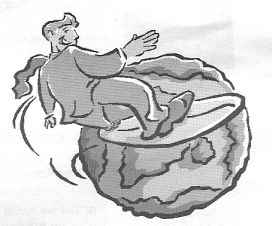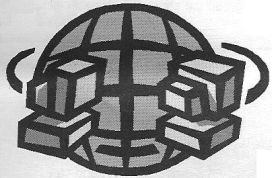 |
| About Alan |
| Tutorials |
| Free files |
| Win9x FAQs |
| E-mail Alan |
| |
| Articles |
| BIV articles |
| Archive |
| Other articles |
| Archive |
| |
 |
|
|
|
Putting
the Internet to Work
by Alan Zisman (c) 2004 First published in Vesta News May 2004 Pretty much all Vancouver teachers and students have Internet access, in schools-in our classrooms, libraries, and computer labs, at home-virtually all of my students at East Vancouver's Chief Maquinna Elementary report having computers and Internet access, at public libraries, cafes, and more. How to use that wealth of information in a way that supports the rest of what's going on in the classroom can be more problematic.  I've
done a series of lessons at Maquinna, having
students get information I've
done a series of lessons at Maquinna, having
students get informationfrom the school library, from CD-ROM encyclopedias, and online. Afterwards, I asked students to discuss the pros and cons of using each information source. They concluded that the Internet was the hardest to use, that the information they found was often hard to read and interpret, and that it often lacked credibility. But they also said that it was where they were most likely to turn the next time they needed to get information. So expect your students to turn to the Internet if you give them research-based homework. But while students are likely to use the Web, too many of them are unlikely to use it well. Most students know about search engines (typically Google.com), but understandably have trouble being able to find web pages with on-topic and age-level reading material amidst the often hundreds or thousands of 'hits' for their search. At age-appropriate points, we teach students how to best use paper and pencil and how to use the school and public libraries. Too often, however, teachers assume that students 'just know' how to use the Internet. Perhaps this is because many teachers still feel intimidated by the Web, while nearly all of our students take computers and the Internet for granted. Teachers who rarely use the Internet often have unrealistic expectations about how difficult it can be for their students to find useful information. The Web is like a gigantic library in which the collection is poorly catalogued and much of the material hasn't been shelved properly. It's relatively easy to find specific facts ("What is the population of Japan") or to find something on a relatively broad topic ("Find a web page about Ancient Egypt and write down ten facts in your own words"). But it can be extremely difficult, especially for a grade 6 or 7 student with average reading ability, to use the Internet to find specific information to answers to higher-level questions ("Why did ancient civilizations arise in river valleys like the Nile or Mesopotamia?")  It
is possible to use the Internet as a source
for
research, but it can be a It
is possible to use the Internet as a source
for
research, but it can be alot of work, and it takes a lot of practice to do so efficiently and effectively. Just as teachers (hopefully!) get in the habit of checking with their school librarians before giving class assignments that require library use, teachers need to get in the habit of checking the Internet to see what students are likely to encounter before sending students off on often frustrating online information chases. Doing so assumes, of course, that teachers themselves become comfortable searching for information on the Net. Many teachers will find that the best way to do that is to start using the Internet as a source of information for the things that they like to do, even things that may seem totally unrelated to what's going on their classroom. Travel, gardening, cooking, music, whatever you're interested in. Anything that raises your comfort level online will make it easier to also check online sources the way your students are likely to. And, especially for students in grades K through 6, teachers and students should start off at a site search engine like Yahooligans (www.yahooigans.com) rather than an adult-oriented search site like Google. Students will get far fewer 'hits' on Yahooligans-which is a good thing. And the hits they get will have been checked by real humans for relevance and child-friendly reading level. |
|
|
|
|
| Alan Zisman is a Vancouver educator, writer, and computer specialist. He can be reached at E-mail Alan |
